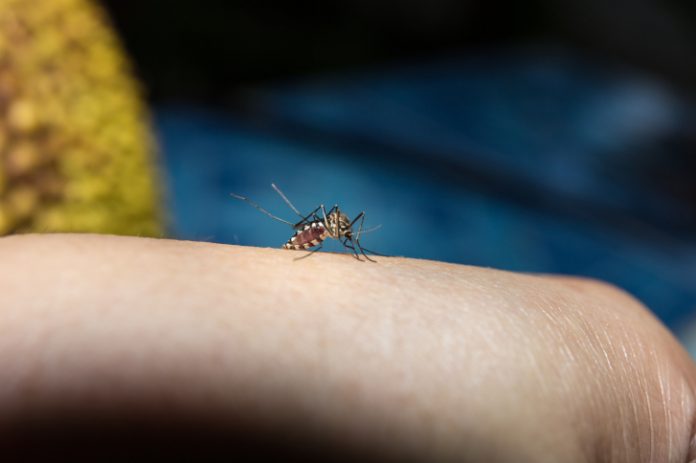The U.S. Environmental Protection Agency (EPA) has approved the release of genetically modified mosquitos.
The mosquito release programs in California and Florida will target Aedes aegypti, an invasive mosquito species that carries zika, dengue fever, heartworms in pets, and other harmful insect-transmitted diseases.
The 2.4 billion mosquitos to be released were engineered by the biotech firm Oxitec. Called “Friendly” Aedes aegypti, the mosquitos are all males, don’t bite, and only produce male offspring. The males will breed with wild females, the number of females will fall, and the mosquito population decline.
Brazilian Success
In a Brazilian pilot project, the release of Friendly mosquitos resulted in a 95 percent decline in the Aedes aegypti in the treated area, said Oxitec in a statement.
“Implemented in close partnership with the City of Indaiatuba, Brazil, the Friendly™ mini-capsule product method suppressed up to 95% of disease-carrying Aedes aegypti in urban, dengue-prone environments following just 13 weeks of treatment, as compared to untreated control sites in the same city,” Oxitec reported.
After the successful pilot, the Brazilian government approved the commercial launch of Oxitec’s program in 2020.
‘Federal Regulators’ Blunders’
U.S. deployment of Friendly mosquitos was delayed for years by the EPA and other federal agencies, says Henry Miller, M.D., a senior fellow with the Pacific Research Institute.
“Oxitec began seeking regulatory approval in 2010,” said Miller. “That began a deplorable Keystone-cops-like series of federal regulators’ blunders that delayed approval of a single field trial for more than a decade—even though the same genetically modified mosquitos had been successfully, safely tested in a number of foreign countries and were approved for commercial use in Brazil.”
Oxitec received an Experimental Use Permit (EUP) for a successful pilot program in the Florida Keys in 2020, but regulators delayed granting further permits, says Miller.
“It took the EPA an absurd, inexcusable two-and-a-half years to approve this simple field trial,” said Miller. “This is not too surprising, given that the EPA is possibly the worst regulatory agency in the history of the world; corrupt, incompetent, and politicized.”
Delays Endanger Public Health
The U.S. Centers for Disease Control and Prevention reports most Americans contract vector-borne diseases like dengue fever, malaria, and zika in foreign countries, but U.S. outbreaks have occurred.
In 2020, 71 people in Florida and 12 in Texas were infected with dengue fever by mosquitos. In 2015, 200 people caught the disease in Hawaii.
Regulatory delays in approving innovative technologies like Oxitec’s Friendly mosquitos threaten human health and result in unnecessary illness and death, says Miller.
“Regulators’ bumbling and fumbling of the oversight of important products such as the Oxitec mosquitos has real-world consequences,” Miller said. “It deprives public health agencies of a way to prevent lethal mosquito-borne diseases, discourages innovation, and raises the cost of the products.”
Linnea Lueken (llueken@heartland.org) is a research fellow with the Arthur B. Robinson Center on Climate and Environmental Policy at The Heartland Institute.


























